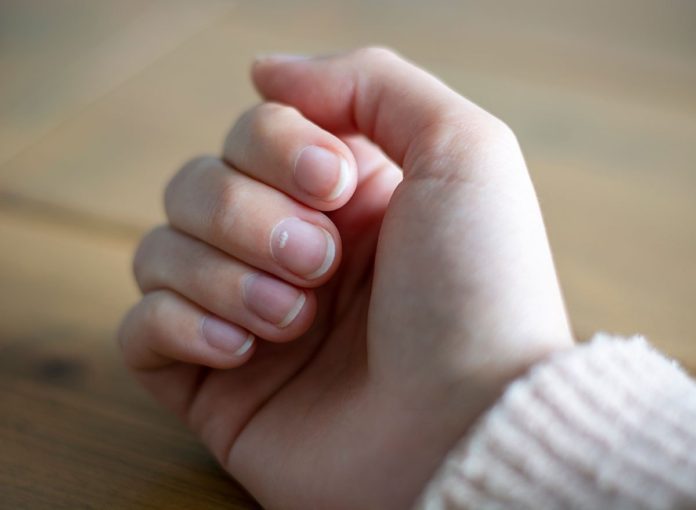Your mouth is not a junk drawer. Don’t put anything in it that you don’t intend to swallow because chances are good that you’ll end up swallowing it, say doctors who’ve had to extract all sorts of inedibles that have gone down people’s gullets.
It’s a pretty simple concept that most kindergarteners master:
String beans—good.
String of Mardi Gras beads—bad.
But while there are all sorts unique (and weird) things people have put in their mouths and swallowed, there are just as many other seemingly innocuous things people commonly put in their mouths and chew on all the time that are unhealthful, too, starting with ice cubes. And we know you’re thinking about that chewing gum you accidentally swallowed last week. Well, don’t worry: despite the commonly held belief, chewing gum doesn’t take 7 years to digest. That old rumor “is medically unfounded,” said pediatric gastroenterologist David Milov of the Nemours Children’s Clinic in Orlando, Florida in an interview with Scientific American. Endoscopy and colonoscopy procedures have proven that.
ER doctors say most hard objects the size of a quarter or smaller will pass naturally through the body. But don’t risk an involuntary ingestion: Paperclips, though tiny, may pierce soft tissues; recently, a surgery journal reported a rare case of colon perforation in a man who swallowed a shrimp leg. Turkey and chicken bones and cocktail sticks are far more common. So, think before you chew or suck, and check out this list of the 10 worst common things we put in our mouths.
Read on to find out what it is—and to ensure your health and the health of others, don’t miss these Sure Signs You’ve Already Had Coronavirus.
In the battle between two crystals, tooth enamel and ice, your teeth usually win. But sometimes the ice is the victor and your enamel gets cracked or chipped and you’ll experience pain or at least a sensitivity to temperature. Compulsive ice eating, technically called pagohagia, may enter the realm of a mental health issue or even an eating disorder called pica, which involves cravings to eat things with no nutritional value. To protect your teeth in other ways, watch out for these 15 Foods That Stain Your Teeth.

Half of all people who swallow toothpicks don’t realize it until they experience abdominal pain, according to a study in World Journal of Surgery. Perforations of the intestine are common, and the associated mortality is high. The picks can pierce the esophagus, stomach, and duodenum, but 81% do their damage in the small and large intestines.

A little pinch between your cheek and gum delivers more than 28 cancer-causing chemicals, including cadmium, polonium-210, formaldehyde, benzo(a)pyrene and lead, reports Johns Hopkins Medicine. The cancer typically begins as leukoplakia, a whitish patch that develops inside the mouth or throat or another precancerous lesion called erythroplakia, characterized by a raised red patch in the mouth, according to the American Academy of Oral Medicine. Both are linked to esophageal and pancreatic cancers.

Dentists can often identify anglers by their chipped teeth. Die-hard fishermen will sometimes bite monofilament fish line so often to cut it when tying on a hook or lure, they end up wearing a groove into their teeth, says a report in the flyfishing website troutster.com. Don’t risk your teeth. Buy a pair of nippers to cut fish line, advise the troutster.com editors.

Nail biting, or technically onychophagia, is a repetitive, compulsive condition that might suggest an underlying psychiatric problem. Or maybe it’s just a touch of nerves. One thing’s for sure: the area underneath your fingernails tends to be a cesspool of bacteria that is very difficult to sanitize, according to a study in the Journal of Clinical Microbiology. In fact, this subungual space may harbor viruses like the one that causes COVID-19, say researchers writing in the Journal of the American Academy of Dermatology. But even if your hands are super clean, nail biting may be unhealthy. The practice puts your jaw in a protruding position that can place undue pressure on it, which can lead to jaw dysfunction, according to the American Dental Association.

When you’re focus is fixed on hammering a nail and not your fingers, you may forget about the extra nails held in your lips. Then, when you smash your thumb you may inhale and swallow a nail or three. It happens, according to the medical literature. Holding nails in your mouth is unhealthy even if you don’t have an accident. The galvanized coatings or resin compounds on some nails could cause a toxic reaction, says The New York Times.

Chewing on silicon balls or similar rubber resistance products like a device called Jawzrsize supposedly strengthens facial and jaw muscles and gives the face a leaner, “chiseled jaw” look. Good idea? No, say dentists. And the 20-minute chewing “workout” probably won’t do anything to get rid of your double chin. Potential risks include temporomandibular joint (TMJ) disorders, which cause pain in the jaw joint and supporting muscles, dislocation, and even headaches. “Talk to a neuromuscular dentist before starting any type of jaw exercise,” writes Dr. Kevin Berry, a dentist at TMJ Therapy & Sleep Center of Colorado in Denver. “It is a mistake to believe that too-weak muscles are causing your TMJ. In fact, it’s common for people with TMJ to have overdeveloped jaw muscles.”

Forgot your toothbrush on a sleepover? Don’t even think about using someone else’s. Toothbrushes are breeding grounds for potentially unhealthy microorganisms. Brushing with a contaminated toothbrush can expose you to the following: (1) decay-causing bacteria like streptococcus mutans, (2) a bacteria that causes periodontal disease, which can lead to bleeding gums, tooth and bone loss, (3) cold and flu viruses, including the coronavirus that causes COVID-19, and (4) though rare, blood-borne diseases like HIV and hepatitis.

Like unwashed fingers, the things you regularly hold in your hands should not be held in your teeth, warn dentists. Pens, pencils, and car keys are loaded with germs that can make you sick. Biting down hard on them is an easy way to crack a tooth.

Have you held your grocery receipt in your lips while putting your credit card back in your wallet? Thermal paper cash register receipts and some bus tickets contain BPA (bisphenol A), the chemical that’s a known endocrine disrupting contaminant that may impact your health. Research conducted at University of Missouri published in Plos One showed that simply touching thermal receipt paper after using hand sanitizer increases BPA absorption into the bloodstream by up to 100 fold. So imagine what you’re getting by sticking receipts into your mouth. And to make sure you’re at your healthiest, especially during the pandemic, don’t miss these 35 Places You’re Most Likely to Catch COVID.
Credit: Source link































